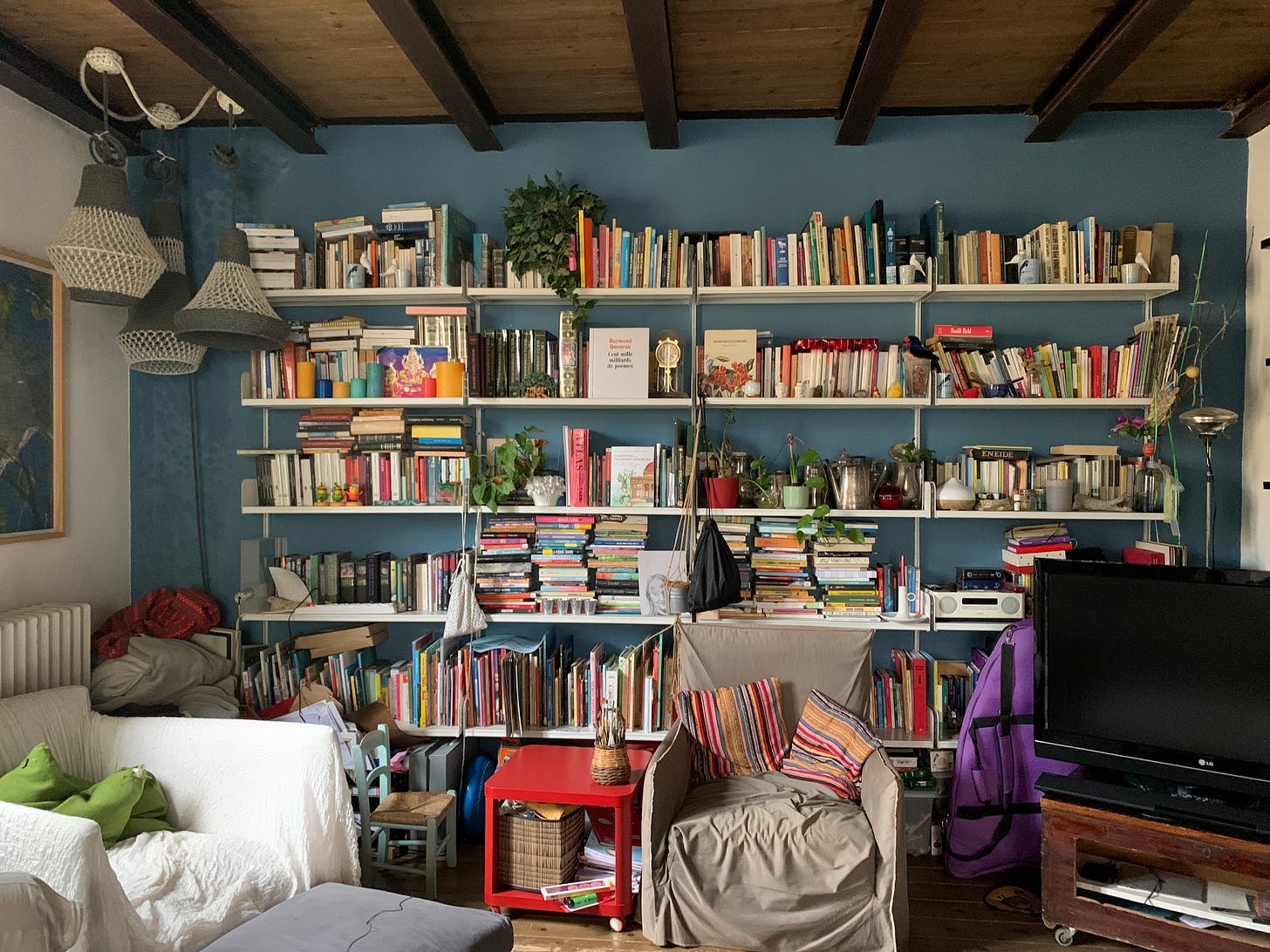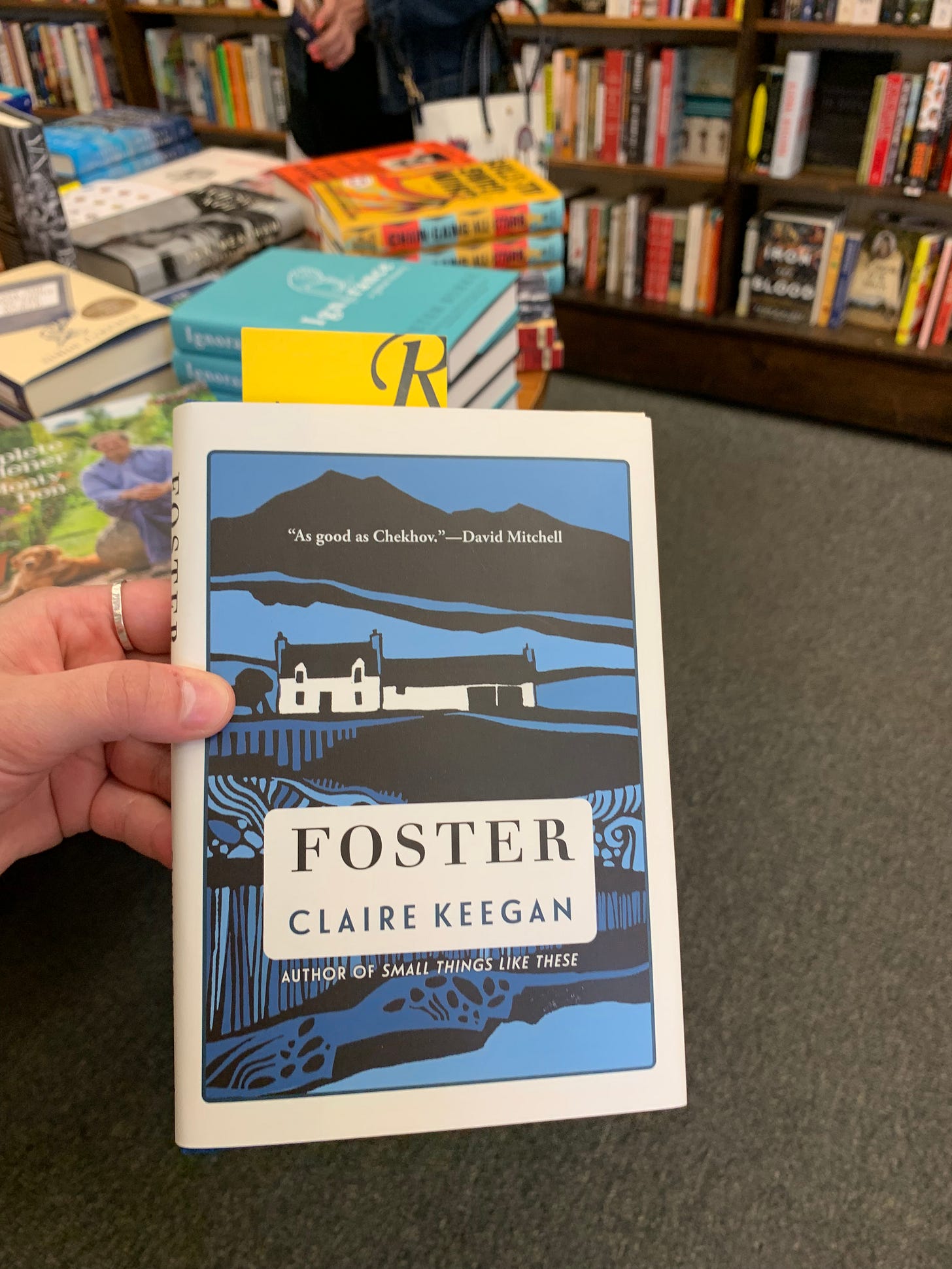I was recently at a cocktail party where a woman (young, educated, employed) admitted she doesn’t think women should vote because women are too emotional.1
Nothing to say to that except, voting may be taken from us, but you’ll have to pry this (metaphorical) pen out of my cold dead hands.
In the spirit of this artificial holiday, International Women’s Day, where we celebrate the de-facto diversity of our planet, here are some of my favorite fiction writers who qualify as both women and international.
Jhumpa Lahiri
Jhumpa Lahiri is a professor, writer and translator. She’s the daughter of Bengali immigrants, London-born and New England-bred.
She has no fewer than five advanced degrees: one bachelor’s, three master’s, and one doctorate (English literature, English, creative writing, comparative literature, Renaissance studies, respectively).
So it’s no surprise, then, that her first collection of stories “Interpreter of Maladies” won the Pulitzer Prize. Her first novel “The Namesake” became an international bestseller and was an English department favorite among progressive high schools.
She primarily writes about the immigrant and Indian-American experience, specifically East Asian adults who move to the East Coast. Now, after having moved to Italy, Lahiri writes almost exclusively in Italian or translates between English and Italian.
Read for: Insight into the Ivy-educated and children of immigrants, New England academia aesthetic, and the relationship between duty and desire.
Start with: “The Namesake” or “The Interpreter of Maladies.” If you’re an ambitious fiction reader, go for “The Lowland”. If you’re academic or into languages, read “Translating Myself and Others”.
Feel free to skip: Her short story collection “Unaccustomed Earth” -- it’s repetitive and emotionally flat compared to her other works. And there’s no need to read her work in Italian unless you’re trying to learn Italian. As literature, it doesn’t offer much.
Chimamanda Ngozi Adichie
Chimamanda Ngozi Adichie is a Nigerian author. She immigrated to the United States during college, got a couple degrees, won a genius grant, became a best-selling writer, and now divides her time between Nigeria and the United States.
I met Chimamanda Ngozi Adichie at a book signing and was so starstruck I could barely speak. She is a tall formidable woman with impeccable style -- some women really can do it all.
Adichie is known as a post-colonial feminist writer, her protagonists are complex women searching for independence in some way, but she refuses to conform to American politics. Her novels reflect this. She writes about religion, gender, cultural differences between Nigeria and the United States, and lets no one off the hook.
Read for: Poking fun at Obama-era liberals and insular Americans, insight into the class-conscious and optimistic nature of Nigerian culture, three dimensional female characters.
Start with: “Americanah,” her magnum opus.
Extra credit: Her Ted Talk “The danger of a single story” perfectly captures her writing ethos: Identity, be it religious or ethnic, though central to a person, can never define someone.
Claire Keegan
Claire Keegan is an Irish novella and short story writer. She studied at Loyola University in Louisiana, but has resided in the United Kingdom and Ireland since.
Her prose is simple and pared down, so the emotional weight of her stories creeps up on you. The themes of her writing revolve around the solitude and simplicity of rural Ireland and the reticence of Irish culture, which breeds secrecy.
Read for: Country aesthetic, the duplicity of Church presence in Ireland, the mundane of family life.
Start with: Her novella “Foster” or her short story “Small things like these,” recently adapted into a movie.
Feel free to skip: Her short story “Antartica.” If you’ve read it, you’ll know why.
Elena Ferrante
Elena Ferrante’s identity is unknown. What is known is that she is exceptional.
The Italian novelist writes under a pseudonym and refuses to reveal her identity or other biographical information, other than her birthplace of Naples, Italy.2
Ferrante has written many books, but in English-speaking countries she is most well-known for The Neapolitan Novels, a quartet of novels that follow the friendship of Lila and Lenu as they come of age in post-war Naples. The New York Times named “My Brilliant Friend” as the best book of the 21st century and, for once, I can say the NYT is spot on.
Read for: The most realistic and devastating descriptions of female friendship, a window into the grittiness and poverty of post-war Italy, the twisted morality of Neapolitan culture.
Start with: “My brilliant friend” and be wowed.
Feel free to skip: “The lying life of adults.” This one’s kind of weird.
Happy reading everyone!
What kind of circles do you run in, Lucia? is an appropriate question
Which means she could be my long lost great aunt, right?





